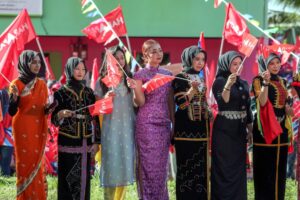KUCHING, Nov 15 — The government is drafting comprehensive guidelines to ensure that children without citizenship are not excluded from accessing education or government development programmes.
Deputy Prime Minister Datuk Seri Fadillah Yusof said a holistic solution is needed to address the issue of undocumented children, particularly in Sarawak, even though a task force had been established previously.
He said several aspects still require thorough review, including legal provisions, guidelines and implementation procedures, to ensure that children born in the state but not officially registered are not further marginalised.
“Although they were born in Sarawak, some children still do not have, or have yet to register for, their birth documents.
“Addressing this issue is essential because under any circumstance, no child should be excluded or left behind, especially when it comes to education and access to government programmes,” he said when speaking at the Sarawak Women’s Impact Forum 2025 here today.
Commenting on the development of clearer guidelines, Fadillah said he would coordinate with all relevant ministries and agencies to review the actions currently being taken at both the federal and state levels.
“What I will do is ensure that, although the task force is already in place, I will call together all relevant ministries and agencies so that we have a clear understanding of what the government is doing, whether at the federal or state levels,” he said.
The one-day forum, held at the Borneo Cultural Museum, brought together some of Malaysia’s most inspiring women changemakers, along with national leaders and civil society advocates.
Organised by the Women of Impact (WOI) Core Committee, the forum aimed to spark honest conversations and collective action on issues affecting marginalised communities, including poverty, education, animal welfare, the environment, and the emotional distress often experienced by women across various communities. — Bernama





